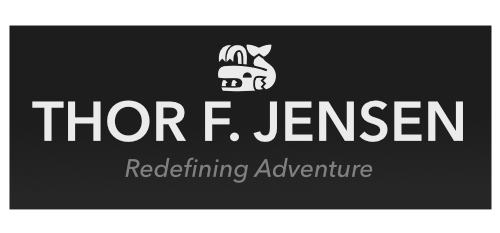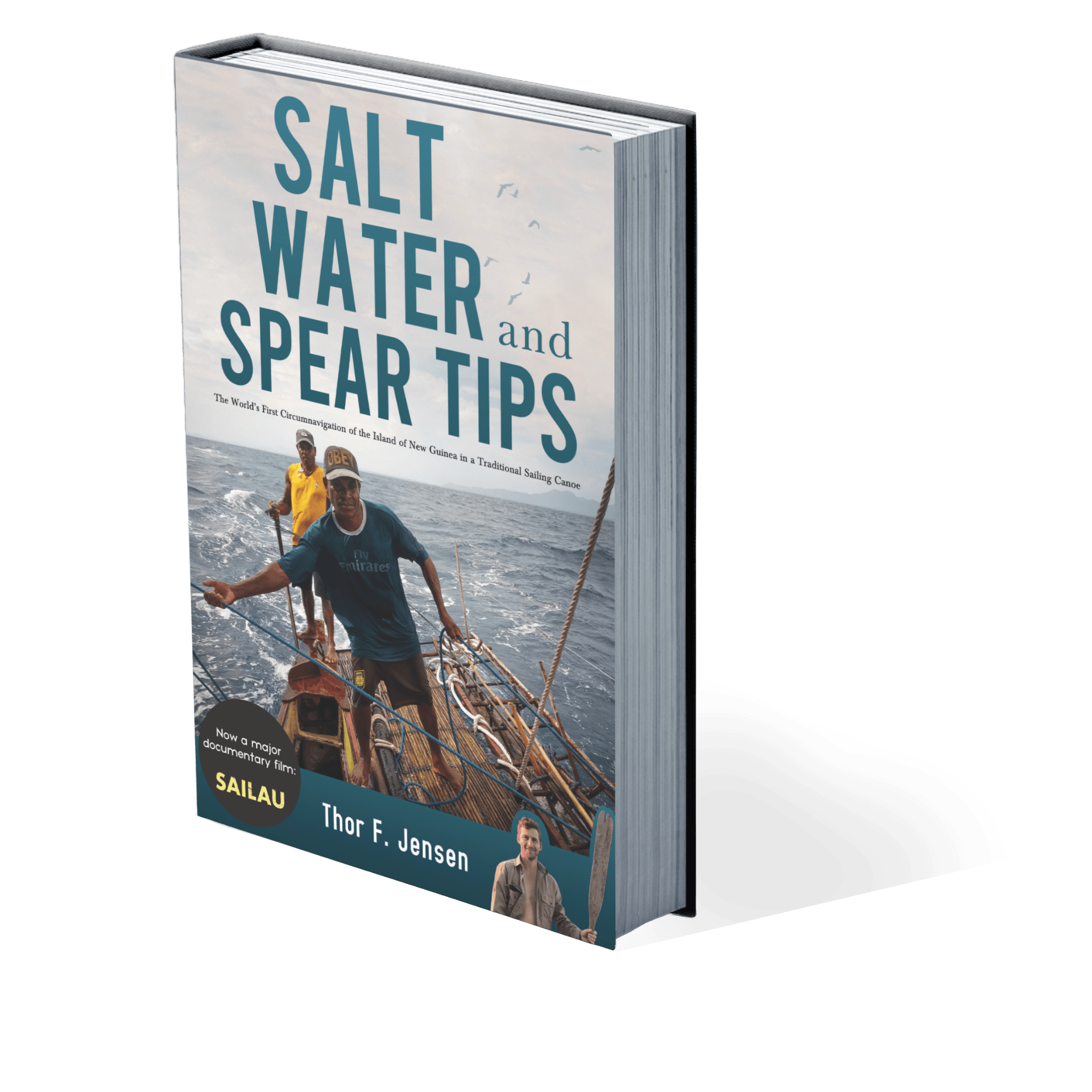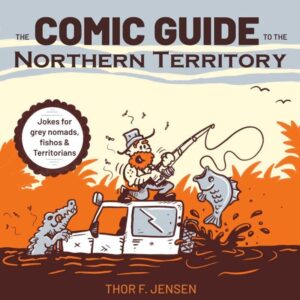If you enjoyed the video but wish to learn more then keep reading.
You might think it seems like a daunting task to begin writing a book. I hadn’t written a book either but after six months in a cottage I had a 440-page draft for my book:
Salt water and Spear Tips – The World’s First Circumnavigation of the Island of New Guinea in a Traditional Sailing Canoe.
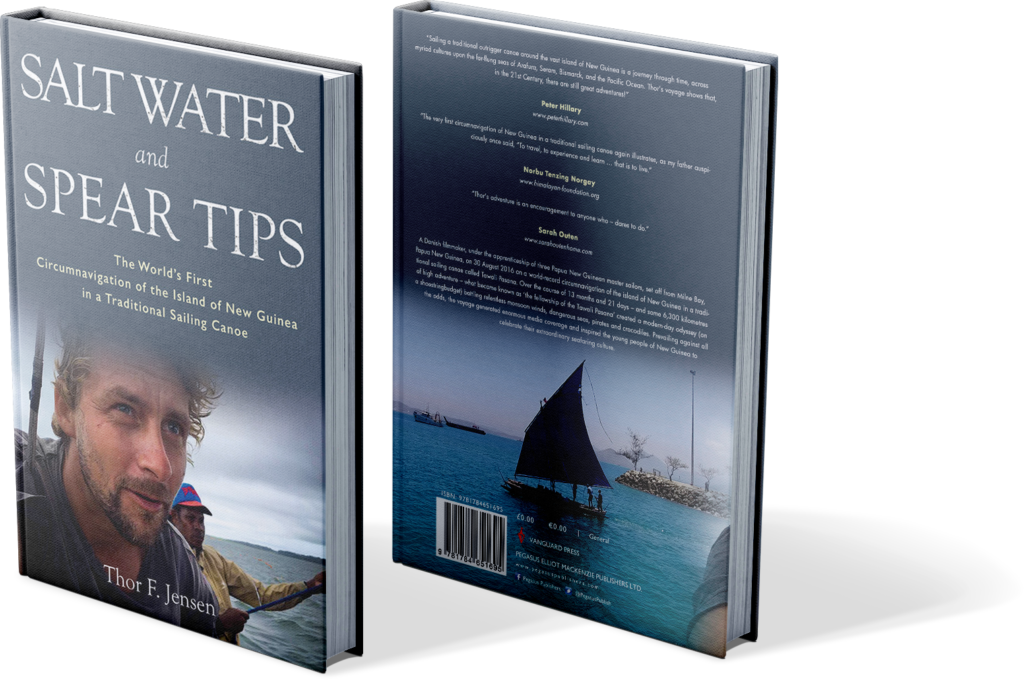
(As an Amazon Associate I earn from qualifying purchases)
I believe in the power of storytelling so I made this document with ten tips that I learned from the writing process, hopefully they can help and inspire you too.
Here we go: 10 tips on writing your first book.
- Tell the world. Tell your friends and family that you are going to write a book: it might feel scary but now the idea is no longer your own and you might receive support from unexpected people. If you are met with skepticism, then consider cutting these negative people out of your life or if you can’t do that, then use their skepticism as a drive to prove them wrong.
- Create a routine. We are creatures of habit, but it takes about a month to create a new habit. I dedicated the first four hours of the day to work on my book six days a week. But not all can do that, if you are working nine till five, I suggest you get up two hours earlier each day a write. And this brings us to the third tip.
- Remove distractions. This is super important. These days there are distractions from everywhere, the reason I advise writing in the early morning is that it is often quiet during this time and your brain is fresh and rested. Should you check social media and emails before starting to write? No – don’t contaminate your pristine brain, all that other stuff can wait till you have finished the most important task of the day – writing. Cal Newport has written a wonderful book on focused working, it’s called deep work check it out.
- Use pen a paper. Not to write your entire book. But it really helps to use a block of paper When developing your story outline or framework, when you put a pen on paper the ideas becomes tangible, you can also use post-its to help structure the different, draw timeline, development of each character and so on.
- Manage your capacity, start out by focusing on the actual writing, get all the ideas out that have been developing in your head, then when you start to feel empty then you can get on to the more automated tasks of transcribing interviews, formatting and researching on the internet – which is likely to distract you, as I talked about in tip three.
- Accept there are bad days. You can’t be exceptional all the time. It is like waves: sometimes you are on a crest other times you are in a valley, no matter what, it is important to stick to the routine, writing some rubbish is better that writing nothing at all, it is all part of the process. And you can be proud of yourself because you stuck to your routine.
- Break it in to pieces. Writing a whole book can be a daunting task. And as with all big projects it helps to break it in to smaller tasks. You have already sketched out the frame work of the book on your block of paper, right? Now Focus on a chapter at a time of course if you get ideas for future chapters then don’t hesitate to write those down. But you will experience that if you immerse yourself and keep your routine then suddenly you look up and have a full draft in front of you.
- Collaborate – I think it is important to show and discuss your work with other people. Of course it can be scary to show your work and hard to get critique. But remember – Critique can be super valuable – especially if it comes from the right people. So, find some people to collaborate with, maybe you know another writer or a book aficionado and ask if they want to comment on your chapters. Working on my book I collaborated with an Australian author from Cultural Consulting, every time I had a chapter I would send it off to him and get an edited version back, I learned so much about this process, plus the fact that there was somebody on the other end waiting for the next chapter was good motivation. It can of course also be overwhelming with opinions from all sides, but then you have to stick with gut when making decisions, in the end it is your book. And remember if you have a good project then people will love to help you on your way.
- Sacrifice/Investment. The time you spend on your book has to be subtracted from elsewhere. That can be time with family and friends, loss of income from work and so on, Instead of seeing this as a loss see it as an investment – not an financial investment – what I mean is you invest your time in something you believe in, something out of the ordinary, a very special product you will have for the rest of your life.
- Enjoy the voyage. Finally, I encourage you to remember to enjoy the voyage, and reward yourself with a little treat for every chapter you complete. Writing a book is an amazing experience, you learn so much, develop as a person and hopefully create something that will bring joy and educate others. I can reveal that I actually shed a tear when I wrote THE END on the last page of my first draft. The reason why I got emotional was both because the story I had told was so immense and full of trauma, but I also wept because I was proud and happy.
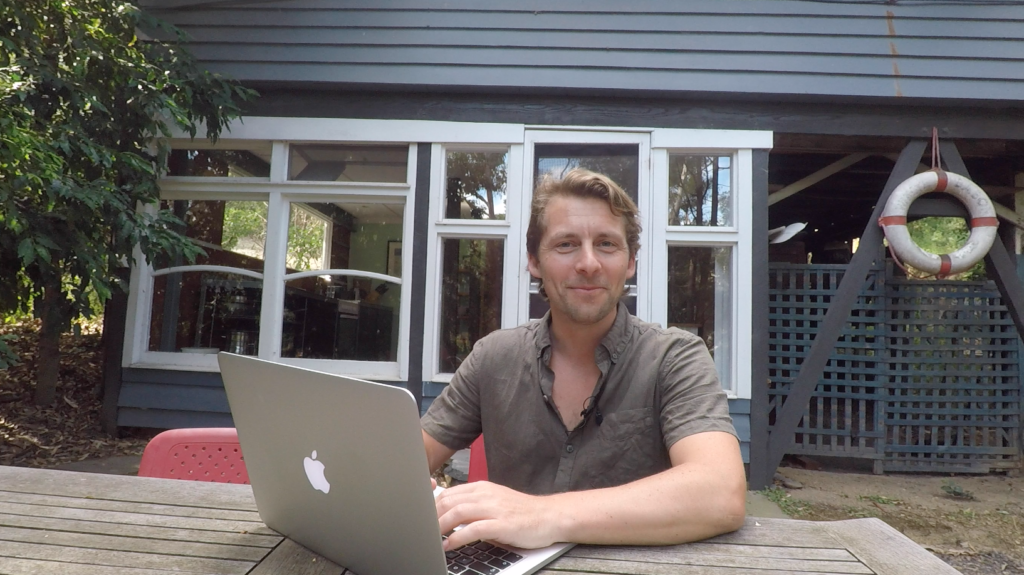
Hope you enjoyed this list and please let me know what advice you would add to this list by commenting on the YouTube video.
You can support me by purchasing my book Salt Water and Spear Tips on amazon US, UK or AUS (As an Amazon Associate I earn from qualifying purchases)
If you’d like to be updated on more resources please join my mailing list.
